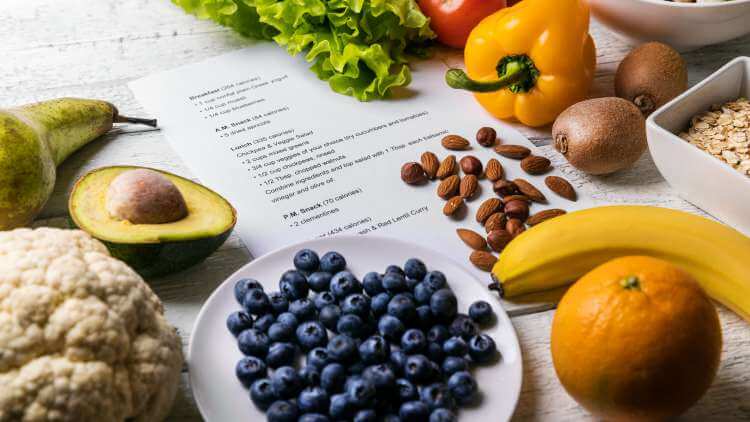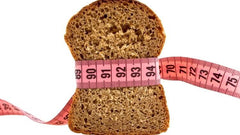
The Only Pre and Post Bariatric Surgery Diet Guide You Need
Undergoing bariatric surgery is going to change your life, there’s no doubt about that. But what some people don’t realize is that the changes start right from your first consultation rather than after surgery.
If you’ve been used to eating anything and everything you fancied, and you’ve been reinforcing bad eating habits your entire life, it’s likely you have a very strong addiction to junk food – and too much of it. Because of this, you’re probably planning on eating as much of your favorite foods as you like in the lead up to your operation, with a ‘last supper’ planned the day before.
Unfortunately, weight loss surgery doesn’t work quite like this. Once you’ve visited your consultant to discuss your surgery, it’s likely you’ll be put onto a very low-calorie diet there and then in preparation for your procedure.
How to prepare for bariatric surgery (pre-operation)
Most of the preparation involved in getting ready for bariatric surgery centers around your diet. Basically, you need to stop gorging on all the food you like, and make some major changes, quickly. As part of this, you’ll need to start losing weight right away.
Why a pre bariatric surgery diet is necessary
It probably seems strange to diet before weight loss surgery – after all, isn’t that the whole purpose of the weight loss surgery itself? Well, actually, you’ll need to lose as much weight as possible prior to the surgery for safety reasons. And the bigger you are, the more you’ll need to lose.
The main reason for this is because it’s important to reduce the amount of fat surrounding your liver and spleen. Because of this, you should try to lose weight immediately, even if your operation isn’t scheduled for another 6 months time. The more weight you lose, the safer your surgery will be. For optimum weight loss, we recommend a 1200 calorie pre-bariatric surgery diet for around 6 months before the op.
2 weeks before surgery
You’ll be put onto a liquid diet before bariatric surgery, usually for around 2 weeks. During this time, the fat around your liver and spleen will be diminished further – and although it’ll be a tough 2 weeks, it’s absolutely imperative you stick to this diet. Failure to do so could result in your consultant aborting surgery mid-way through the procedure for safety reasons as he struggles to visualize certain parts of your anatomy. A liver that is too large simply cannot be operated on. For this reason alone, it cannot be exaggerated enough that you really must abide by the consultant’s dietary advice during this time.
What to eat before surgery
As part of the 2-week diet, you’ll be put on before surgery, you’ll need to follow a few strict rules:
- You’ll mainly survive on protein shakes or meal replacement shakes during this time
- You’ll need to cut out all caffeinated and carbonated drinks
- You won’t be allowed any drinks containing sugar (although they can contain sweeteners)
- You’ll be able to eat very thin soup broth, but this cannot contain any pieces of food at all
- The only solids you’ll be able to eat during this time may be a very small portion of extra lean meat or vegetables once or twice a day, but this does vary by surgeon, so always check before eating
- Vegetable juice such as ‘V8’ is also sometimes permitted during this time
When you eat anything during this time, you’ll need to wait at least 30 minutes before you can consume any type of liquid. This may sound harsh, but it’s all good preparation for the challenging times you face ahead following surgery.
What foods to avoid before surgery
Although it’s going to be extremely tempting, you need to avoid binging on your old favorites in the lead up to your surgery. It’s an important step not just physically, but mentally too to prepare yourself for major lifestyle changes.
There are certain foods you need to avoid in the 6 months prior to your weight loss surgery. Failure to do so could lead to complications during or after surgery, so it’s definitely in your best interests to avoid the following:
- High-carb foods – Pasta, bread, potatoes, cereals, rice
- High-sugar foods – Pastries, cakes, candy, chocolate, and baked goods
- High-sugar drinks – Including fruit juices, carbonated drinks, and squashes
- High-fat foods – Fried food, dairy, fatty cuts of meat, fatty junk food
Obviously, if these foods have been the main basis of your diet before now, you’re going to face some challenges with keeping your mindset on the right track. Luckily, new habits will develop over time so long as you stick to a healthier way of eating. The most difficult part is the beginning.
What should a post bariatric surgery diet consist of?
After surgery, your diet will never be able to be the same again. The good news is, you’re unlikely to want it to be, as your stomach will simply no longer be able to tolerate the same volume of poor quality food as it did in the past.
There are 4 main stages to a post-bariatric-surgery diet, as detailed below:
Stage one: Liquid diet – (Days 1 – 14 post-surgery)

For the first week or 2 post-surgery, you’ll need to stick to a clear liquid only diet, taking in a maximum of only 1 or 2 ounces each hour.
The clear liquids you’ll be allowed will be likely to be very simple, such as:
- Still water
- Clear broth
- Skimmed milk
- Sugar-free jello
If there are any complications with your recovery, this stage could last longer – that’ll be down to your surgeon to decide at the time.
Stage two: Pureed diet – (7 days – 2 weeks post-surgery)
After around 1 week, your doctor should be able to allow you to begin on a pureed food diet consisting mainly of liquid forms of protein such as protein shakes, liquidized vegetables, and lean meat. You should also be able to tolerate around 8 glasses of clear fluids such as those you’ll have been consuming in stage one. This is important to keep hydration levels up.
You’ll still have to steer clear of everything else previously mentioned in the disallowed foods list of course. In fact, in an ideal world, you’ll cut many of these things out long-term. Sugary foods and drinks have no nutritional value after all and are not part of a healthy, balanced diet.
Stage three: Soft diet – (2 weeks – 2 months post-surgery)
By 2 weeks post-surgery, you should be able to begin to gradually start reintroducing soft foods back into your diet in addition to everything you’ve previously been eating since the operation.
The general rule of thumb at this stage is that if you can squish the food into a paste with a fork, you can eat it. Again, you should be sticking to soft meats and vegetables for this stage. In fact, these should become the main basis for your everyday diet moving forward.
Your meals at this stage should be small and regular – up to 6 times per day if that suits you well. Little and often is key at this point. In total, you should be aiming to consume around 70g of protein per day during stage 3.
Some great high protein options for stage 3 include:
- Poultry
- Fish
- Egg whites
- Fat-free cottage cheese and soft cheese
- Tofu
You’ll also need to fill up on soft fruits and veggies to ensure you get all the nutrients you need for a healthy balanced diet. Try to include these as much as possible:
- Bananas
- Avocados
- Squash
- Green beans
- Cucumber
- Tomatoes
- Peas
- Potatoes
In addition, your surgeon will ask you to begin taking certain supplements to ensure you’re taking in adequate vitamins and minerals. It’s common that you may begin to suffer from the effects of malnutrition if you don’t remember to do this on a daily basis, as your body is no longer capable of consuming the wide variety of foods it once was.
Stage four: Stabilization – (2 months+)
 This is the stage which you’ll no doubt be looking forward to the most, but be warned – you can never return to eating the same diet you did before once surgery has been performed unless you want major issues to follow!
This is the stage which you’ll no doubt be looking forward to the most, but be warned – you can never return to eating the same diet you did before once surgery has been performed unless you want major issues to follow!
Stretching your new stomach will lead to weight gain again, and eating the wrong kinds of foods will also lead to weight gain, even if you’re eating less.
This is the beginning of a new chapter for you, and it’s time to learn a better way of eating. You need to learn to fall in love with healthy foods rather than greasy takeouts and sugary treats. It can be done, but it takes commitment to change the habits you once had.
You can begin to gradually reintroduce solid food at this stage – one type at a time – until your body gradually learns to readjust to it. However, you should still base the majority of your meals around lean meats and vegetables. Grains should be kept to a minimum and you should cut out sugar if at all possible.
To help with satiety, you should stay well hydrated, still drinking at least 8 glasses of water per day, and chew your food for much longer than you did previously.
Steer clear of processed foods of any kind when at all possible, and prioritize protein over all other types of food, with vegetables coming a close second.
What lifestyle changes after surgery are necessary
The lifestyle changes needed after bariatric surgery are vast, and there’s no denying that your life will never be the same again.
You’ll no longer be able to eat what you want when you want, or even as much as you want. If you ignore your body’s signals to slow down, you’ll face the consequences.
Dumping syndrome
Dumping syndrome is a common problem for those following a post bariatric surgery diet. The issue arises when a post-op patient eats too much sweet or fatty food and the body fails to process it properly due to the new stomach size. The poor quality food hits the small intestine way before it’s ready – with it not getting a chance to be broken down by the duodenum properly first.
The result is chronic diarrhea with nausea and sometimes vomiting. Not only this, you’ll shake, sweat, endure painful stomach cramps and your heart will race. As you can imagine, this isn’t a pleasant experience. One episode of dumping syndrome can be enough to put a post-op patient off sugary, fatty foods for life.
Post operation meal plan

As your life gradually returns to some degree of ‘normality’, you’ll need to stick to a varied, nutrient-rich diet. Wondering how to do that? Here’s a sample 5 day post op meal plan to help you out:
Day 1
Breakfast
Protein shake
Lunch
Mashed potato with cooked white fish
Dinner
Omelet with vegetables
Snacks
Pistachio nuts
Day 2
Breakfast
Boiled eggs with carrot sticks
Lunch
Chicken and vegetable soup
Dinner
Spiralized cucumber with beef bolognese
Snacks
Nuts and raisins
Day 3
Breakfast
Protein shake
Lunch
Lettuce-wrapped ‘burritos’
Dinner
Spanish omelet with salad
Snacks
Fruit and natural yogurt
Day 4
Breakfast
Salmon and poached eggs on a bed of spinach leaves
Lunch
Chicken salad
Dinner
Cauliflower base pizza
Snacks
Greek yogurt with banana
Day 5
Breakfast
Scrambled eggs and lean bacon
Lunch
Tuna and sweetcorn salad
Dinner
Chicken with mashed potato and vegetables
Snacks
Protein shake
Is bariatric surgery for you?
Only you can make the final decision on whether bariatric surgery truly is your best option. For some, it’s their only option, but that’s very few and far between.
Check also our Review of The AspireAssist Device >>
Unless you’re super-morbidly obese, you should always try to lose weight naturally first. It’s a much kinder way to treat your body, and it doesn’t have to be as complicated as it may seem.
To get started, why not try out the 5-day post-bariatric surgery meal plan mentioned above in conjunction with taking a natural appetite suppressant such as PhenQ? You may just be surprised at what you can achieve even in 5 days.
Have you previously considered bariatric surgery, only to find success through dietary changes and the use of PhenQ? We’d love to hear about your experience in the comments below!




